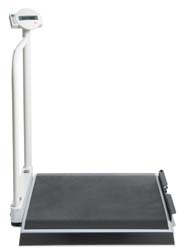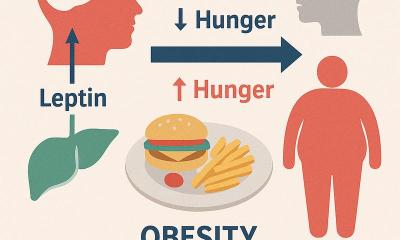Weighing up to 360 kg patients
seca GmhH & co. manufactures a non-calibrated platform scales that can take a maximum capacity of 360 kg.

On the seca 676, weight is clearly shown in steps of 100 grams on the swivel-mounted display at hip level, the firm reports. ‘The weighing platform is only 51 mm high and is easy to mount by people who have difficulty walking. Even very adipose people have a safe footing on the large platform measuring 95 x 96.5 cm. And the stable railing firmly attached to the scales provides a secure hold.’
The ‘hold’ function stores the weight value for a few minutes after the patient has left the scales, so the patient can be helped first, then his/her weight noted. The patient’s condition is quickly determined using the BMI (Body Mass Index) function, seca points out adding that this weighing machine is equipped with a damping system, to guarantee precise weighing of even restless patients.
Wheelchair users have sufficient space on the generously sized platform. And, thanks to the TARE function, the weight of a wheelchair is deducted to provide only the weight of the patient. With the pre-TARE function, an already stored value can be deducted from the total measured weight – a chair’s weight, for example.
The railing can be quickly folded down and the scales, now reduced to a compact size, can be easily stowed away. For transportation, the seca 676 can be placed on its narrow side, which is fitted with castors and, with the rail safely locked in position it serves as a handle, so the scales can be pushed along. In addition, the machine stands safely in an upright position, seca confirms.
27.06.2007





